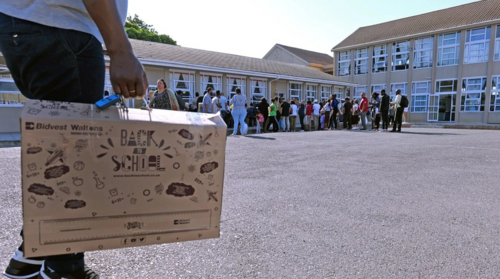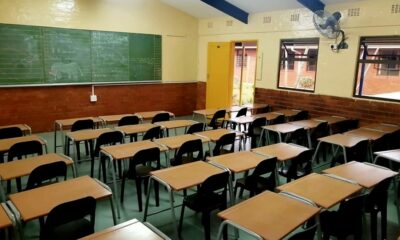411
Eastern Cape Schools Lose Crucial Funding as Alcohol Ban Hits Fundraisers

A recent alcohol ban enforced by the Eastern Cape Department of Education is sending shockwaves through the province’s public schools, cutting off a lifeline of funding that has supported school infrastructure, bursaries, and community events for decades.
Schools like Dale College — one of the Eastern Cape’s oldest boys’ institutions — are being forced to host alumni events off-site, after being told that the sale and consumption of alcohol is now strictly prohibited on school premises, even during after-hours fundraising gatherings.
The new directive, issued in March 2025 by the department’s head Sharon Maasdorp, outlawed all forms of alcohol sales on school grounds, including those previously permitted under permanent or special event liquor licences. According to Maasdorp, previous permissions granted by school governing bodies (SGBs) or principals lacked legal authority without explicit MEC approval.
“The sale of liquor is prohibited from school premises,” reads the circular. “This applies to both permanent and event liquor licence holders.”
More Than a Party: Schools Say It’s About Budgets
The decision has sparked major concern from schools and parents who say the events in question — such as sports days, alumni luncheons, and school festivals — have never posed a risk to learners, but instead provided crucial revenue in an era of shrinking government subsidies.
A parent at one former Model C school said critics misunderstand how tightly controlled these events are. “No children are served alcohol. These aren’t bars they’re school events where parents and alumni gather to support the school financially.”
Funds raised often go toward maintaining facilities, supporting sports teams, and helping with student bursaries — needs many schools say the Department of Education cannot meet alone.
Phiwe Ndinisa of the Old Dalian Union (ODU) at Dale College explained that the group built a dedicated alumni clubhouse decades ago, complete with a bar funded and licensed independently of the school. But under the new rules, even these alumni-led efforts have been cut off.
“For the first time in our history, we had to host our reunion off-site,” Ndinisa said. “Attendance dropped and costs increased and that ultimately hurts the school.”
Legal Pushback Mounts
Legal representation is now stepping in. BLC Attorneys director Guy Dakin, representing 10 schools across the province, has filed a dispute against the ban, arguing that the Department of Education’s interpretation of the South African Schools Act is flawed.
“Section 36 only requires MEC consent in select instances,” Dakin said. “The blanket ban prevents schools from fulfilling their obligation to assist the government with maintenance and learner support.”
Dakin also noted that many of these licences have been in place for more than 30 years without a single complaint or legal challenge.
The Eastern Cape Liquor Board, however, stands firmly behind the department. Its spokesperson Mgwebi Msiya confirmed that 38 schools were impacted and said the board previously issued licences based on SGB endorsements — something now seen as insufficient under the department’s new stance.
Community Events Also Affected
The fallout isn’t limited to schools. Events like the Kirkwood Festival and the Makhanda National Arts Festival — which often rely on school facilities during off-peak times — are also at risk. Schools that rent out their premises during holidays or for special events may now lose that revenue stream entirely.
“There’s a tavern across the street from a school that continues to operate freely,” said one parent. “Yet schools, trying to support their own learners, are being punished.”
A National Issue with Local Consequences
Education MEC Fundile Gade has stood firm, stating that the ban is about principles and protecting learners in a country with one of the highest alcohol consumption rates in Africa.
“I’m correcting a loophole. No school should ever sell alcohol,” Gade said.
Still, many believe the department has missed a chance to strike a balance between responsible adult fundraising and learner protection.
As legal challenges continue and alumni groups scramble for alternative venues, the bigger question remains: who will fill the funding gap now that the taps have been turned off?
{Source: Daily Maverick}
Follow Joburg ETC on Facebook, Twitter , TikTok and Instagram
For more News in Johannesburg, visit joburgetc.com


























